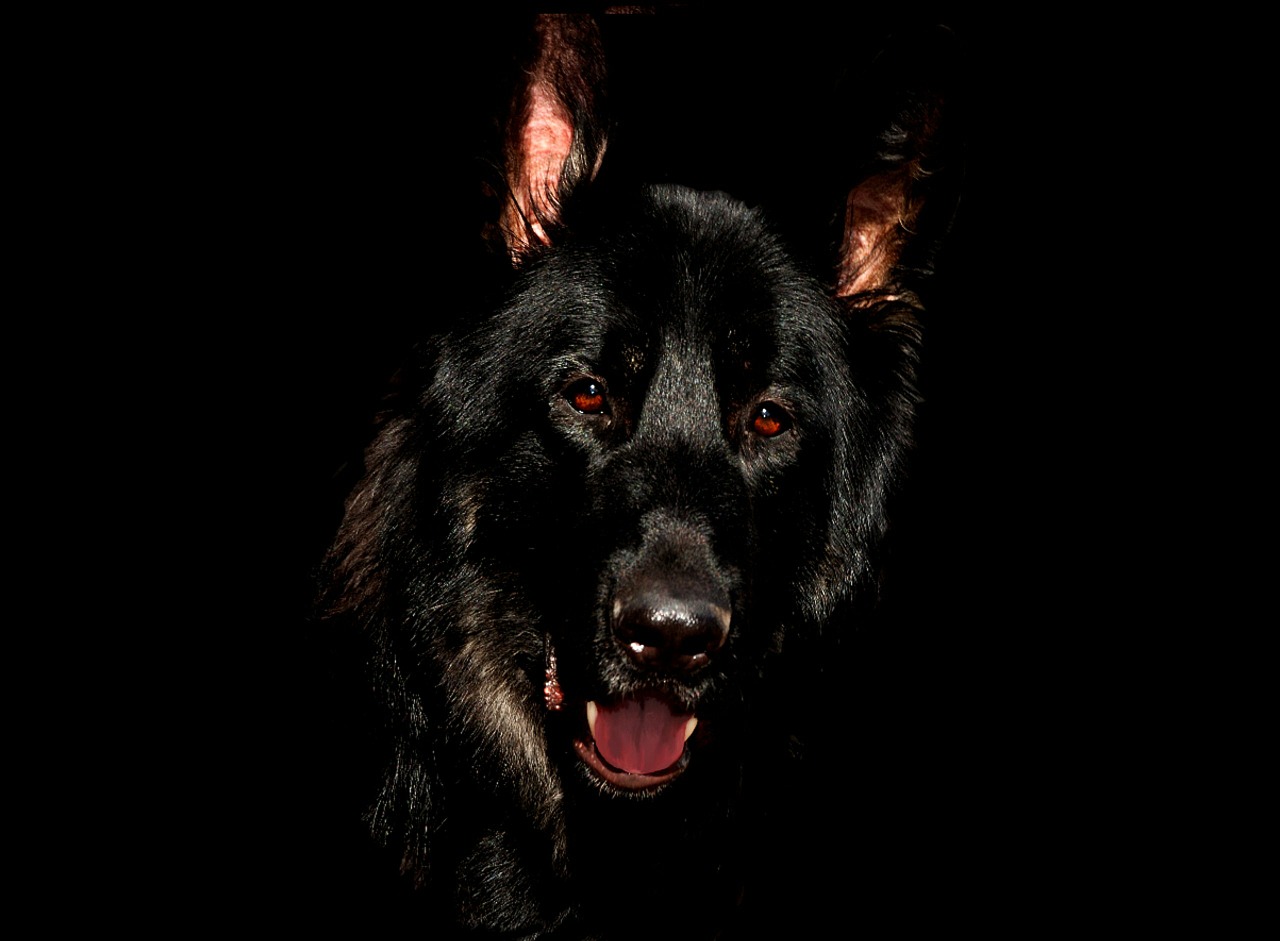
Introduction
The Black German Shepherd is a breed of dog that was developed in Germany in the early 1900s. They are a cross between the Black Labrador Retriever and the German Shepherds.
The Black German Shepherd is a unique breed of dog that possesses many desirable characteristics. They are intelligent, courageous, and loyal, making them excellent companions and working dogs. In this article, we will discuss the Black German Shepherd breed in detail. We will cover their characteristics, temperament, health, grooming, and training needs.
Characteristics
The Black German Shepherd is a large dog that typically weighs between 70 and 90 pounds. They are muscular and well-proportioned with a deep chest and long tail. The Black German Shepherd’s coat can be black, black and tan, or sable in color. Their eyes are usually dark brown or black in color.
The Black German Shepherd is an active breed that requires plenty of exercises. They are best suited for families that have an ample yard where they can run and play. Black German Shepherds are also excellent working dogs and make great police or military dogs.
Temperament
The Black German Shepherd is a loyal, courageous, and intelligent breed. They are protective of their family and home and make good watchdogs. Black German Shepherds are also known to be very gentle with children. However, they can be assertive towards other animals and should not be trusted around small pets.
Health Challenges of The Black German Shepherd
The Black German Shepherd is a popular dog breed that is known for its strength, intelligence, and loyalty. However, like all breeds of dogs, the Black German Shepherd is susceptible to a number of health challenges. Some of the most common health concerns for Black German Shepherds include:
Hip dysplasia: Hip dysplasia is a condition that affects the hip joints and can cause pain and mobility problems. Dogs with hip dysplasia may require surgery or other treatments.
Elbow dysplasia: Elbow dysplasia is a similar condition that affects the elbow joints. Dogs with elbow dysplasia may require surgery to correct the problem.
Deafness: Deafness is a common problem in Black German Shepherds. Dogs that are deaf may require special training and handling.
Eye diseases: Black German Shepherds are susceptible to a number of eye diseases, including cataracts, progressive retinal atrophy, and glaucoma. Early diagnosis and treatment are important to preserving the dog’s vision.
Allergies: Black German Shepherds are prone to allergies, which can cause skin problems, itching, and respiratory problems. Treatment typically involves medications or dietary changes.
Cancer: Black German Shepherds are at risk for a number of types of cancer, including lymphoma, mast cell tumors, and bone cancer. Early diagnosis and treatment are important for increasing the dog’s chances of survival.
Thyroid problems: Black German Shepherds are also at risk for thyroid problems, which can cause weight gain, hair loss, and other health problems. Treatment typically involves medication.
Obesity: Black German Shepherds are prone to obesity, which can lead to a number of health problems, including joint problems, diabetes, and heart disease. A healthy diet and plenty of exercises are important for keeping Black German Shepherds at a healthy weight.
Ear infections: Black German Shepherds are prone to ear infections, which can cause pain, irritation, and hearing loss if not treated promptly. Keeping the ears clean and dry is important in preventing ear infections.
Digestive problems: Black German Shepherds can also be prone to digestive problems, such as diarrhea and vomiting. Feeding a high-quality diet and providing plenty of water are important in keeping the dog’s digestive system healthy.
Urinary tract infections: Black German Shepherds can also be prone to urinary tract infections, which can cause pain, inflammation, and even kidney damage if not treated promptly. Keeping the area around the dog’s genitals clean is important in preventing UTIs.
Skin conditions: Black German Shepherds are also prone to a number of skin conditions, including allergies, hot spots, and skin tumors. Treatment typically involves medications or surgery.
Joint problems: Black German Shepherds are prone to a number of joint problems, including hip dysplasia, elbow dysplasia, and arthritis. Treatment typically involves medications or surgery.
Behavioral problems: Black German Shepherds can also be prone to behavioral problems, such as chewing, digging, and barking. Training and patience are important in correcting these behaviors.
Dental problems: Black German Shepherds can also be prone to dental problems, such as tooth decay and gum disease. Brushing the dog’s teeth regularly is important in preventing dental problems.
Reproductive problems: Black German Shepherds can also be prone to reproductive problems, such as infertility and false pregnancies. If you are considering breeding your Black German Shepherd, be sure to consult with a veterinarian first.
Grooming
Black German Shepherds require regular brushing and bathing. Their coat should be brushed at least once a week to keep it healthy and free of mats. Baths should be given every two to three months, or as needed. Black German Shepherds also need to have their ears cleaned and their nails trimmed on a regular basis.
Training
Black German Shepherds are intelligent dogs and are relatively easy to train. They respond best to positive reinforcement training methods and should be taught basic obedience commands such as sit, stay, come, and down. Black German Shepherds can also be trained to perform various tasks such as tracking, search and rescue, and narcotics detection.
Conclusion
The Black German Shepherd is a unique breed of dog that possesses many desirable characteristics. They are intelligent, courageous, and loyal, making them excellent companions and working dogs. In this article, we have discussed the Black German Shepherd breed in detail. We have covered their characteristics, temperament, health, grooming, and training needs. If you are considering adding a Black German Shepherd to your family, please be sure to research the breed thoroughly so that you know what to expect. Thanks for reading!





